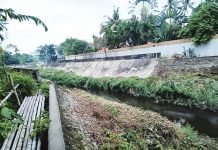
BY NELJOY N. GALIGAO
CAPIZ — In a major step toward strengthening the protection of marine resources, the Department of Agriculture’s Bureau of Fisheries and Aquatic Resources Regional Office 6 (BFAR-6) officially launched its Harvest Strategies in Capiz on September 17.
The initiative, held in line with the 62nd Fish Conservation Week, highlights the government’s renewed commitment to sustainable fishing practices and marine biodiversity protection in the province.
The launch gathered more than 200 stakeholders, including Gov. Fredenil H. Castro, Panay’s Mayor Jonathan Besa, local government officials, fisherfolk, and representatives from various organizations. Discussions centered on the urgent need to address critical issues confronting the fisheries sector — particularly the widespread use of fine mesh nets.
These nets, which violate existing regulations, have been identified as a serious threat to fish populations in Fisheries Management Area (FMA) 11, accounting for more than 50 percent of fishing activity in the area. By indiscriminately catching juvenile fish, the practice contributes to declining stocks and long-term economic losses for small-scale fishers.
Edwin Candelario B. Javier, officer-in-charge of PFO Capiz, stressed the importance of accurate catch data and urged cooperation in documenting and assessing the effects of illegal fishing practices.
“Only through collaboration can we hope to reclaim our seas and restore fish populations,” he said.
Gov. Castro, in his keynote message, underscored the need for shared responsibility in protecting marine resources. He called for stronger partnerships among government agencies, local communities, and civil society groups, emphasizing that voluntary participation and proactive engagement are vital to achieving sustainable fisheries.
The event also featured presentations on stricter enforcement of fishing regulations, expanded awareness campaigns, and the updating of local ordinances aligned with the FMA 11 Harvest Strategy. These measures aim to curb illegal fishing practices and strengthen marine conservation in the province.
The gathering concluded with a joint declaration among participants to protect the municipal waters of Capiz, particularly within FMAs 11 and 12 — signaling a united front in advancing marine resource protection and sustainable fisheries management.
The launch in Capiz forms part of the nationwide rollout of Fisheries Management Areas (FMAs), underscoring the government’s commitment to conserving aquatic ecosystems, supporting fisherfolk, and ensuring the long-term viability of the country’s fisheries./PN






